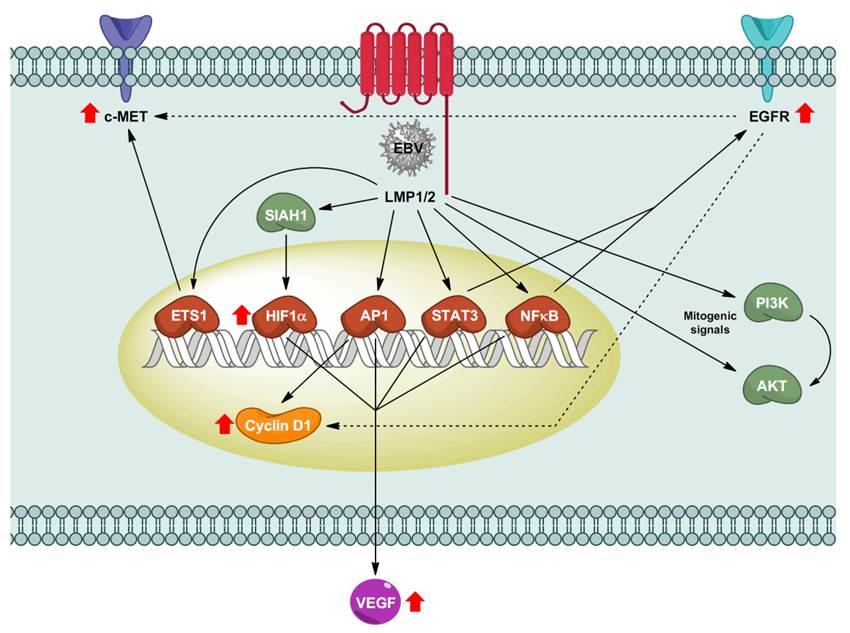Novel Molecularly-Targeted Therapies
Advances in our understanding of the molecular genetics underpinning head and neck cancer (HNC) development and growth have resulted in the emergence of novel molecularly-targeted therapies, with the aim of improving efficacy and/or quality of life, while minimizing damage to surrounding normal tissues. Since molecularly-targeted agents exploit tumor-specific aberrations, they are thought to provide a theoretical advantage over conventional chemotherapeutic cytotoxics, in which a major drawback is the exacerbation of normal tissue toxicity.
Evidence is accumulating that a variety of targets involved in different cellular processes may provide novel opportunities for therapeutic targeting. The Liu lab currently focuses on several approaches to develop novel molecularly-targeted therapies for HNC, ranging from antisense oligonucleotides, RNAi (siRNA and shRNA), to small molecule inhibitors.

Therapeutically targetable molecular aberrations in NPC arising from EBV infection.
Representative Publications:
|